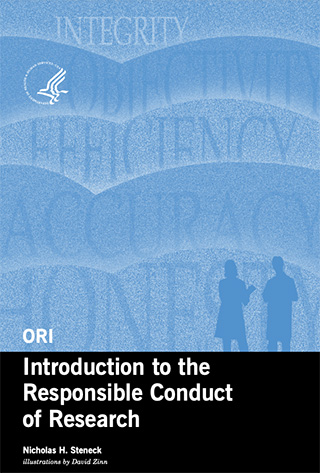Responsible Conduct of Research
Responsible Conduct of Research
The University of South Florida is committed to the highest standards of honesty and integrity in research and scholarly activity. It strives to foster an environment in which research flourishes and results of research are reported accurately and without bias, thereby contributing to the advancement of knowledge.
Each individual engaged in research is expected to exercise honesty and integrity in the proposing of research and in the collecting, analyzing, and reporting of research results. Behavior and activities that interfere with an honest search for the truth are not acceptable, and all members of the USF community have an obligation to report observed, suspected, or apparent research misconduct.
The University recognizes that researchers and scholars are usually highly principled. Though misconduct in research is an infrequent occurrence, when it occurs, it has the potential to impugn the integrity of USF and the individual researcher and to jeopardize external funding for research.
responsible conduct of research (RCR) Training
USF Research Integrity & Compliance offers a comprehensive Responsible Conduct of Research (RCR) training program, including both online and instructor-led offerings. The typical content of the instructor-led sessions includes information and presentations by experts in the field on human and animal research, safe laboratory practices, conflicts of interest, research misconduct, mentor/mentee relationships and responsibilities, authorship and publications, collaborative research, and peer review of research.
Who is Required to Complete RCR Training?
- Faculty, staff, students, and postdocs conducting research supported by the National Science Foundation (NSF) are required to complete RCR training. For new proposals submitted on or after July
31, 2023, all faculty and other senior personnel named on the proposal must complete
RCR training.
- Program directors, faculty, students, postdocs, and any staff participating in research
funded by the National Institute of Food and Agriculture (NIFA).
- Faculty, staff, students, and postdocs conducting research supported by the National Institutes of Health (NIH)*. The specific training requirements apply to trainees, fellows, participants, and scholars receiving support through any NIH training, career development award, research education grant, or dissertation research grant.
*Online training (CITI) is not sufficient to meet the NIH requirement. Training should involve eight or more contact hours depending on the NIH award type (research training grant, individual fellowship, career development award, research education grant, dissertation research grant, or other grants with a significant training component).
What are the RCR Training Options?
USF offers an RCR training series in the fall and spring semesters. Four (4) instructor-led sessions will be held in person in the conference room in the new research building (3814 Spectrum Boulevard) throughout the semester. Seating capacity is limited, so please register to attend. Each session covers a distinct RCR topic and lasts approximately one (1) hour. Any USF faculty member, staff, or student is welcome to attend these sessions. Attendance at each session will satisfy one (1) credit hour for RCR training. Individuals can attend as many or as few sessions as they like. Certificates of completion for each RCR session will be issued to attendees. A combination of these training sessions will fulfill both NIH and NSF RCR training requirements.
| Date & Time | Topic | Instructor |
|---|---|---|
|
Tuesday, April 8 |
Research Security
|
Presented by Dr. Fred Pflueger, Export Control Officer |
